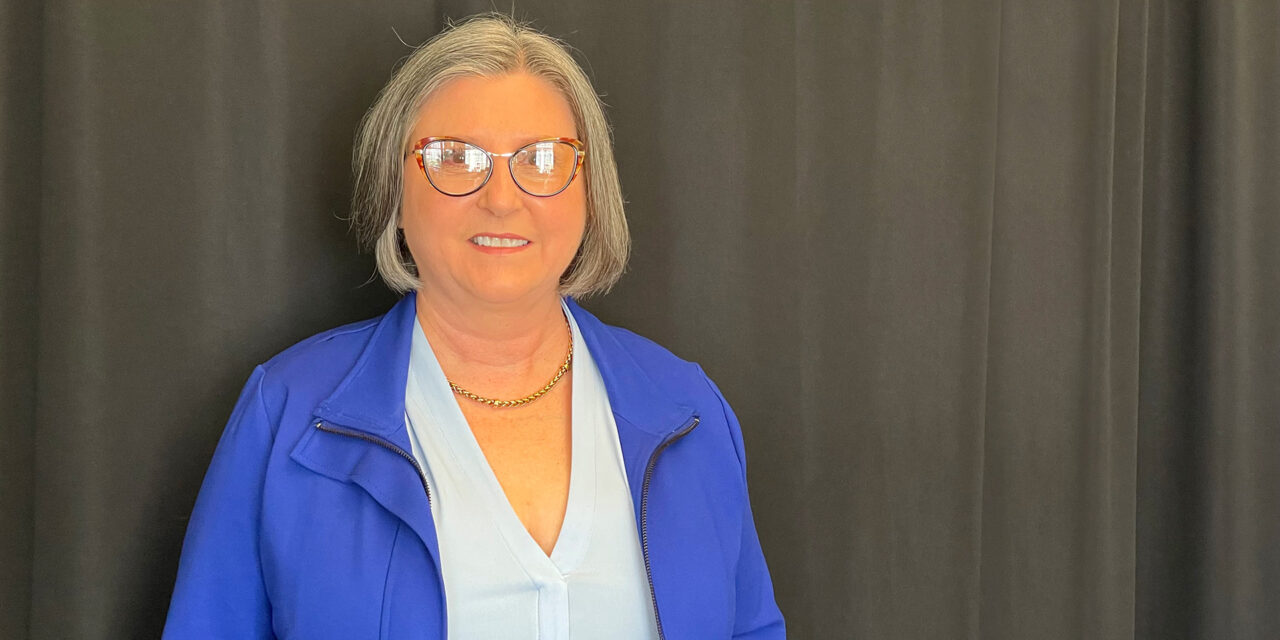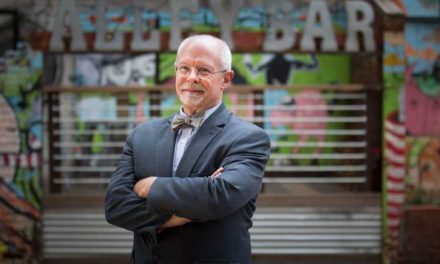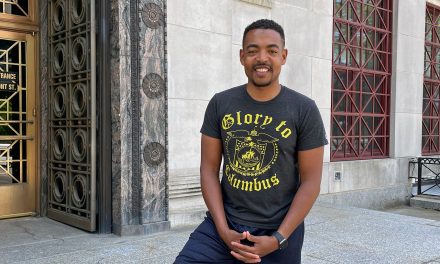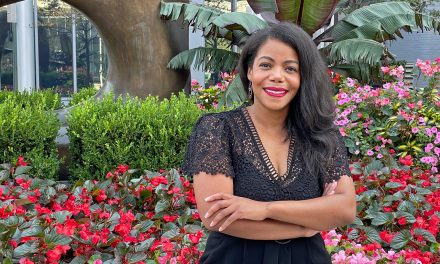Podcast: Play in new window | Download
Subscribe: RSS
Tim Fulton 00:07
Ladies and gentlemen, welcome to the confluence cast presented by Columbus underground. We are a weekly Columbus centric podcast focusing on the civics, lifestyle, entertainment, and people of our city. I’m your host, Tim Fulton this week. In anticipation of this fall’s election, the confluence cast is endeavoring to introduce Columbus voters to the 12 Council and two mayoral candidates in their own words. In today’s interview, Nancy day off our candidate for District Two discusses her background, why zoning updates are key to Columbus’s future, and how neighborhoods can fill gaps in social safety nets. You can get more information on what we discussed today in the show notes for this episode at the confluence cass.com. Enjoy the interview. Sitting down here with Columbus City Council candidate Nancy de aka our running in district two. Nancy, how are you?
Nancy Day-Achauer 01:07
I’m doing great, thanks. How are you doing? Doing? Well,
Tim Fulton 01:09
first of all, talk to us about who you are. And what brings you to the candidacy?
Nancy Day-Achauer 01:15
Well, I am not from Columbus, I chose Columbus. I came here in 2005 to earn my master’s degree, and fell in love with Columbus is a place where I could live my American dream. But where I started out was my childhood was in the California Gold Country. Okay, descendent of farmers and miners. And then I lived for 20 years in the San Francisco Bay area. Most of that I spent as a business administrator and a medium sized business K in industries. And then for the last five years, I was the assistant to the General Counsel of the nation’s fifth largest not for profit hospital system. Okay. At that time, it was Catholic healthcare West and now it’s called common spirit. Okay, I’ve heard it lawyers for a living.
Tim Fulton 02:03
There you go. And then what? And so the degree brought you to Columbus.
Nancy Day-Achauer 02:07
So yes, I came to Columbus to attend the Methodist Theological School, which is located in Delaware. Okay, in 2005, for a three year master program there. I said, I fell in love with Columbus. I was ordained a United Methodist pastor here in Ohio, and spent four years serving in rural community before an opening came up in a more urban part of Columbus on the far west side. I had requested that type of an appointment, because that’s the kind of community I’m accustomed to where there’s a great degree of degree of diversity. Okay. But my time spent on the west side, as a pastor has mostly focused on community ministries, addressing human service needs, the community identifies. I know a lot of people think, well, I know what the community needs, and they go in there and they try to fix things, but you really need to talk to the people and have them identify what their particular top priorities are, okay. And one of those was food insecurity. At that time, west of 270, there wasn’t any public Food Pantry, there weren’t any produce distributions. And so a group of us got together, Doctors Hospital sponsored us, and we began to produce distribution. We ran it out of the firehouse, near Doctors Hospital. And we operated that inside the firehouse for four years before the pandemic hit, okay. And then we had to move it outside, understandably, our produce distribution was unique in that it’s year round. So even in the winter, so pandemic hits, it’s March, we’re outside in the parking lot. 28 degree weather was really bitter cold, giving our produce. And it’s a great thing. We were there because so many people were out of work. And the lines for our distribution went around the block, we had to bring in the sheriff’s office to direct traffic. Because there were so many people in line, we were able to continue out in the parking lot until the world opened up again. And then we were able to go back into the firehouse. And at this time mental health food collective, identified the Wow, there really is a great food insecurity issue out here in what they refer to as more of a suburban area, although it’s a mix of Columbus and the suburbs. And so they opened up one of their fresh markets, which is a free grocery store, just a couple blocks up from us, and we were so excited to be put out of business by something that’s actually better, where people have the dignity of being able to go shop, just like everybody else and select the food that they want.
Tim Fulton 04:54
Talk us through how you got to your candidacy why you’re running
Nancy Day-Achauer 04:59
well Over the years, I have had a lot of conversations with Columbus City Council about various issues that I was working on. I also worked on addressing the homeless issue. I was on the steering committee that open Jordans crossing Resource Center. Okay, I worked on addressing the issue of older adults aging in place. A lot of older adults on the hilltop want to stay there, but they need help. And so I worked with friend Ryan and Franklin County and Columbus Age Friendly program, to lunch villa on the Hill program to help older adults age in place successfully. And I’ve worked on the Franklin County and Columbus addiction plan, educating the community about addiction. And so I was always contacting my city council members and the mayor’s office and talking to them about the needs in the community and ways that we can be better engaged, and also talking to them about a variety of other issues that communities care about Lincoln Park, getting your Snowplow, all those things. And over the years, because you know, that’s over a decade, I yeah, I felt that I would be more effective addressing human service needs. If I were serving on city council than working just as a small church, local pastor on the west side, I feel by serving on Columbus City Council, I can help more people in more places instead of just focusing on my little side of town, because west side issues are also issues that are experienced in Linden on the south side. So we have a lot of communities that have needs. And I feel my experience of being actually hands on boots on the ground and communities brings a perspective to council that would be very helpful for them.
Tim Fulton 06:54
Got it. You’ve mentioned some issues, obviously food insecurity, homelessness, folks being able to age in place, what other maybe they’re those issues, specifically, but what issues do you think are facing Columbus,
Nancy Day-Achauer 07:10
the housing issue is huge. And it impacts all aspects of life. Having lived in the San Francisco Bay area, I had the lived experience of what happens in a community when a city in a region does not address the availability of housing. I think a lot of times people hear about housing shortage and all they think of is oh, well, that makes prices more expensive. But hey, I’ve already got a house. So it’s really not my problem. It impacts quality of life in a lot of ways that people haven’t considered when I moved to the San Francisco Bay Area, and rents at that time. So we’re talking 1985 We’re already renting a modest home was like $2,000 a month. Okay. In 1985 salaries, right? Yeah. And so it was common that people had to total strangers had to come together and rent houses, and you had a revolving door of 10s of roommates. Because somebody would get a new job and they’d move away. No, no, I gotta find another roommate. And I was a single parent. So that’s a very stressful thing of always having revolving door. Okay, but that was very common, still is very common in the San Francisco Bay Area. And then also the every couple of years, as your rent keeps getting jacked up more and more and more, you have to move farther and farther away from where you work. And you ended up having to commute an hour to work. Now, at least in the Bay Area, we had bus rapid transit, which at least made the commute a little better. We don’t have that here. Hopefully one day we will. But we don’t have it now. And so you have people who are no longer living and working in the same community. And that really drags you down when you work an eight hour day, and you have an hour commute on each end. People also don’t consider the fact that a shortage of housing not just means that new houses are more expensive, and rentals are more expensive. But when those price points increase, your home values increase as well. So even if you’ve paid off your house, you’re gonna be paying more to live there because your property taxes are going to go up. We’ve already been warned by our franklin county auditor that this is going to be a bigger increase this time. Three years from now, it’s going to be a big, even bigger increase. People will find themselves in a situation where their property taxes can equal their mortgage. And that’s going to impact your quality of life. If you’re a renter, that expense is going to be passed on to you. The landlord’s not going to eat that. So it’s going to impact everyone’s quality of life. We have to have enough houses to house all the people who live here now, but we have to be building towards the future of all the people who are going to be coming here. We know that with Intel, and all these other great businesses that are building here, it’s going to bring in a lot of people, it’s going to be a tsunami of people who are coming, where are they going to live? Columbus needs to build more housing, but so do all of our Suburban neighbors. Columbus doesn’t have enough land, to house all those people, all of our neighbors need to step up also. So we really need to work as a region to address building enough housing to meet our needs. And it needs to be a variety of housing, different types of housing, different price points, because people of every income level need to find a place that’s affordable for them. We need housing not just for low income people, but we need it for school teachers and our firefighters and our police officers and the nurses and the secretary at your office and the person who is working at the drive thru that you go through every day to get your cup of coffee, everybody at no matter what income you have, you need to be able to have a place to live that you can afford.
Tim Fulton 11:15
What role do you think Council plays in solving for that housing issue?
Nancy Day-Achauer 11:21
The the zoning update is going to be huge. Because our zoning is way out of date I was on the west served on the western area commission for eight years, okay, we get a lot of agricultural land out there, and the farmers sell it. And then you have this long drawn out variance process, it can take somebody a year from when they buy the property to being able to develop it simply because they have to go through all this zoning things and permit things. Getting the updated zoning will really be helpful, it’ll eliminate the excessive amount of variances we have to do. We should update the way our the BCA buildings, zoning administration processes, permits and whatnot so that it moves faster. Ours is I’ve been told by a lot of people that ours is much lower than a lot of other cities of our size. And I know, friends of mine who just want to do like an addition on their house, it’s like the whole permit process. It’s, you know, it’s it’s challenging, and it’s expensive. And the more time and the more money people have to spend going through building and zoning, the more expensive your home was going to be where your apartments going to be. So cleaning that up and making it more streamlined is just going to help our process. So those are two things that council can directly impact. We of course have the investments that are going to be made in incentivizing housing that is affordable. And I emphasize the housing that is affordable, that doesn’t mean low income housing, yes, there’s low income housing and the but there’s also housing for, you know, the workforce for right so that you know, you can you can afford. So that’s going to be something that will also help. And I think as we go along, we’re going to kind of find more and more different ways of oh, okay, this issue has come up, and how are we going to address that particular issue? How are we going to address we have areas like the Darby accord, where we have special environmental issues that have to be addressed. How can we make it so that it is more affordable to address these environmental issues in those particular areas? I just know about the cord on the west side, there may be other areas of rhombus that have similar things. I’m only familiar with that one because of my work on the area commission.
Tim Fulton 13:49
And I’m gonna try to make that a segue into how do you feel about the new districting structure that como City Council is under?
Nancy Day-Achauer 13:59
I actually like it. I was one of the many citizens who complained. We don’t have representation on our side of town, we should have districts so that there are people who know our part of town, okay, when you live out living outside of 270 is a different lived experience than inside 270. I can say that from experience because I work in the middle of the hilltop. Yeah, but I live on the far west side, which is Columbus, but feels like you live in the suburbs. Yeah, very different. So we, myself, my area, the area commission that I served on a lot of other citizens. Were saying we want this and there was the failed ballot initiative that that didn’t get enough votes. And but a lot of people kept asking for it. And there’s all sorts of big plans. Some of them I thought were a little quirky, but there’s a lot of different ideas and I think it’s good to throw it Does that mean you kind of see what works? And the charter amendment review came on, I did attend a few of those meetings. Okay. Um, I felt that they were very thoughtful and what they were doing. I spoke in favor of trying to keep airy commissions and civic associations intact. Because contiguous to the district. Yeah, contest the districts because you already had systems in place of advocacy. And the final product that it came out with it being at large voting, although everybody’s in the district, I liked, because I feel that every council member should be answerable to every citizen, every business in Columbus. We don’t want to become the next Cleveland, where you end up with gridlock and fighting and stuff, things don’t get done, because it’s all like, people care about their district first. You know, this is a whole, the city has to work together, we can’t just focus on little things. I mean, every community has a few little things that needs to be addressed that are, you know, particular to them. Yeah. But we have to look at the city as this whole microsystem There we go. Yeah, there’s so many things that need to be done that we need to work together. I know, if I were just a regular voter. And, you know, there were all these outlawed candidate and there was somebody on the other side of town, who was just an obstructionist and wasn’t helping, you know, do do well, for Columbus, I would want to vote that person out. Yeah. And so I, I feel so hey, if you decide you don’t like me, you can vote me out, no matter where you live. But hopefully, you’ll vote me in. Come November.
Tim Fulton 16:44
Well, and thank you for making my transition so easy. Why should people vote for you? What’s your value proposition that you’re bringing to your candidate to see,
Nancy Day-Achauer 16:53
I believe that people should vote for me, because I bring a new and different perspective to Columbus City Council, both from my work, and also from where I live, and my past experience of living in the San Francisco Bay area. Because I can say, don’t do that San Francisco did that. And it didn’t work and it sucked. So I feel that I can bring new and different things that different perspective. And I also add just diversity to our council. Our council has diversity in a variety of ways. I bring I bring age diversity, but also just the diversity of having lived elsewhere and experienced how other large metropolitan areas address issues.
Tim Fulton 17:36
Got it. I end every interview by asking two questions. They are opposites. What do you think Columbus is doing? Well, and what do you think Columbus is doing? Not so well.
Nancy Day-Achauer 17:48
One of the things that Columbus does well, one of the things that I loved about Columbus, when I moved here is the opportunity for regular everyday citizens to be engaged. You can be engaged with city hall by serving on an area commission or a civic association. You can be involved in the arts, there’s all these nonprofits where you can get engaged with that. If you really care about children, there are all these organizations that you can get involved in, and to have direct impact on your community. A lot of other areas don’t have that. And so it’s really exciting for people to have the opportunity to be engaged to be part of something bigger than themselves and to help make a difference. And what is it not doing so well? What is it not doing so? Well? Well, of course, there’s no directory, there’s the housing, we didn’t know that there’s public safety. And there’s a lot of big issues. I will mention one, that’s a smaller issue, okay. That is that we lack equity in our Rec and Park Department, their entire regions of the city, that regions, not neighborhoods that don’t have a recreation center that has zero programming. There’s a lot of city programming that gets run out of rec centers, Summer Food feeding programs for kids, for example, my homework help, there’s all these programs that get run out of our rec centers. And there were huge parts of the city that have no rec center. And they have very little in the way of parks. If a kid in my neighborhood wanted to go to park and play on playground equipment, you need to get in the car and you have to drive down you have to go over the railroad tracks. And then you go over and there’s this little tiny park and it’s got a little bit of play structure and there’s some grass, not as nice as some of the other rec centers, parks in town. And that’s not unique to just where I’m at. There are a lot of parts of cities that don’t have the same services in Rec and Park that are available in many other parts of the city. And I think that’s something that we should address.
Tim Fulton 19:49
Okay. Nancy, thank you for your time today.
Nancy Day-Achauer 19:51
Thank you so much.
Tim Fulton 20:00
Well thank you for listening to Confluence cast presented by Columbus underground. Again, you can get more information on what we discussed today in the show notes for this episode at the confluence cast.com Please rate subscribe, share this episode of The confluence cast with your friends, family, contacts, enemies, your favorite volunteer. If you’re interested in sponsoring the confluence cast get in touch with us. We can be reached by email at info at the confluence cast.com Our theme music was composed by Benji Robinson. Our producer is Philip Cogley. I’m your host, Tim Fulton. Have a great week.





